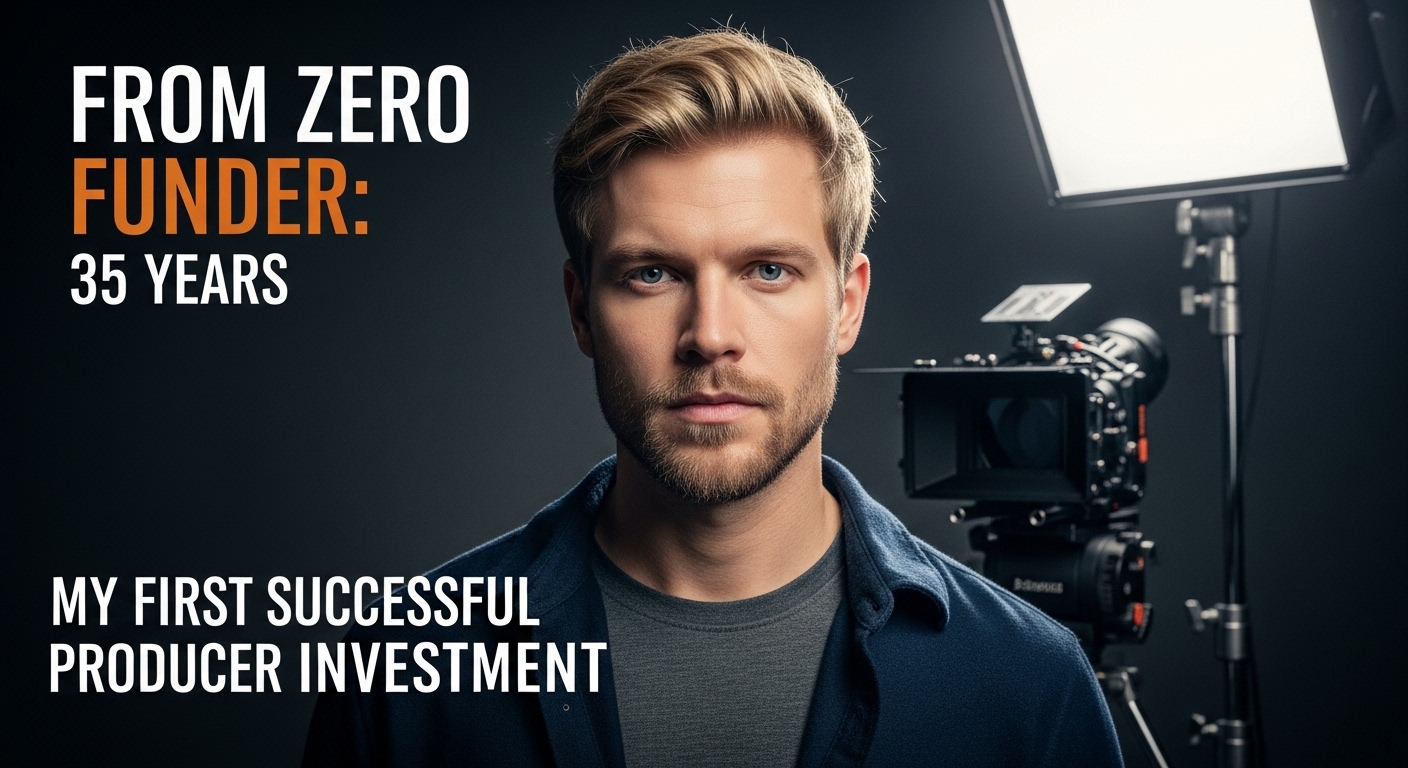In the ethereal dance of storytelling, where truths intertwine with perspectives, research stands as the silent luminary guiding documentary filmmakers through uncharted depths. Like a masterful architect shaping a cathedral from whispers of history and gusts of emotion, research forms the bedrock on which cinematic narratives soar and souls resonate.
The alchemy within each frame, every hushed confession and thundering revelation, finds its genesis in the diligent pursuit of verity—with each document sought and leaf turned, a grand saga unfolds in the shadows cast by truth’s incandescent glow.
As we embark on this odyssey through the labyrinthine corridors of documentary filmmaking, rivulets of insight converging into torrents of understanding, we peer beyond the celluloid veil to uncover realms untouched by casual gaze.
Within these pages thrums not mere commentary but a symphony harmonized by meticulous craft—an ode to unraveling the enigma that is existence itself. Here lies an exploration of how the sagacity gleaned from dedicated inquiry breathes life into tales untold, shaping raw reality into a tapestry woven with threads of memory, sorrow, triumph—the very essence of human experience etched upon frames frozen in time.

Join us in this sublime pilgrimage as we decode the lexicon that binds past to present, unveiling mysteries steeped in forgotten whispers and echoes resonating across generations. Let us walk hand in hand through landscapes painted with hues both vibrant and somber—where shadows give depth to light; where revelations linger like perfume faint upon morning air.
For within these secrets lie not only stories for our ears but reflections for our souls: mirrors held up to catch glimpses of ourselves amidst histories long buried or newly minted—for research is not mere excavation but metamorphosis—a divine sculpting of facts into fables; realities into dreams.
Uncovering the Veil of Truth: The Essence of Research in Documentary Filmmaking.
In the profound realm of documentary filmmaking, research is not merely a tool but a beacon guiding filmmakers through uncharted waters, illuminating hidden narratives waiting to be unveiled. Imagine research as a compass that leads directors and producers towards the heart of authenticity, where every fact unearthed enriches the narrative tapestry with layers of credibility and richness.
Just as a skilled archaeologist carefully brushes away dirt to reveal ancient artifacts, thorough research in documentaries brings forth stories buried beneath the surface, breathing life into forgotten voices and overlooked perspectives.

Picture this: a filmmaker submerged in archival materials, diving into dusty volumes and faded photographs, piecing together fragments of history like an intricate jigsaw puzzle.
Through meticulous investigation, these creators resurrect forgotten tales and shed light on untold truths that resonate with audiences on a profound level. In the riveting world of documentaries like “Searching for Sugar Man” or “Exit Through the Gift Shop,” it’s this dedication to research that transforms mundane facts into compelling narratives, leaving viewers spellbound by the artistry woven with threads of authenticity.
As researchers lay bare facts and verify sources meticulously, they forge pathways to trust within their audience’s minds. Viewers are drawn not only to visual storytelling but also to the integrity embedded in every frame – a testament to the meticulous groundwork laid during pre-production phases.
A well-researched documentary isn’t just a compilation of events but an immersive experience where truth intertwines with creativity to craft something truly extraordinary. It’s this harmony between fact-finding missions and creative vision that elevates documentaries from mere records of events to timeless works etched in the annals of film history.
Exploring the Mosaic of Research Methods in Documentary Filmmaking.
In the tapestry of documentary filmmaking, research methods serve as the colorful threads that intricately weave together narratives that resonate with authenticity and depth. Archival research acts as a time-traveling beacon, delving into historical records and visual materials to unearth the roots of a story, connecting past legacies with contemporary relevance.
Interviews with experts or witnesses become intimate dance partners, guiding filmmakers through intricate steps of discovery, unraveling personal testimonies that add a human touch to factual exploration. Each method plays a unique instrument in the symphony of storytelling, harmonizing to unveil layers of truth and nuanced perspectives.

On-the-ground investigations transform filmmakers into modern-day sleuths, traversing landscapes both physical and metaphorical to capture the pulse of reality. They immerse themselves in environments teeming with life, soaking up textures, scents, and palpable emotions that breathe vitality into their projects.
Studying historical documents is akin to deciphering ancient scrolls; it requires patience and keen observation to decode hidden messages embedded within yellowed pages, offering glimpses into bygone eras that inform present narratives with profound insights.
The blend of these diverse research approaches creates a kaleidoscope view for audiences—a multi-dimensional experience where facts interlace seamlessly with storytelling finesse.
The alchemy of combining various research methods allows filmmakers to paint comprehensive portraits—a mosaic masterpiece crafted from meticulous attention to detail and unwavering dedication to truth-seeking.
By embracing this medley of investigative tools, documentarians sculpt immersive worlds that transport viewers through time and space, inviting them on an enlightening journey of discovery and empathy.
Through archival whispers, firsthand accounts brimming with emotion, grounded explorations under open skies, and scholarly excavations into antiquity’s chest of secrets—documentary filmmakers infuse their creations with an essence that transcends mere entertainment: they offer windows into humanity’s collective memory and aspirations.
Challenges Faced During Research Phase.
In the labyrinth of documentary filmmaking, the quest for truth often leads filmmakers through a maze of challenges. The pursuit of primary sources can resemble hunting elusive shadows, requiring tireless dedication to unveil the hidden narratives shrouded in time’s embrace.
Accessing these rich veins of information demands not only persistence but also finesse – a delicate dance between respect for privacy and the insatiable hunger for authentic storytelling. Like archaeologists sifting through layers of earth, filmmakers must delicately brush away at history’s remnants to reveal the untold stories that linger beneath.
The tightrope walk between journalistic integrity and creative flair is akin to balancing on a razor’s edge. Every decision made during the research phase becomes a brushstroke on the canvas of credibility, painting a portrait that must captivate audiences while staying true to the essence of the narrative being crafted.
Just as a skilled conductor harmonizes discordant notes into a symphony, filmmakers must orchestrate their research findings with finesse, blending raw truths with emotive storytelling to create a compelling cinematic experience that resonates with authenticity.

As filmmakers navigate the winding paths of research, they encounter not only tangled thickets of data but also ethical quandaries that demand careful navigation. Each twist and turn in the investigative process requires meticulous planning akin to charting uncharted territories on an ancient map.
The compass guiding this journey is not just factual accuracy but also ethical considerations that steer filmmakers towards responsible storytelling. The ability to adapt swiftly when unforeseen obstacles rear their heads is like learning to weather unpredictable storms at sea – it demands resilience, flexibility, and an unwavering commitment to uncovering truths ethically and artfully.
Case Studies: Unearthing the Gems of Documentary Filmmaking through Strategic Research.
As the heartbeat of documentary filmmaking, research serves as a guiding light for filmmakers seeking to unravel unseen narratives and ignite conversations that resonate globally. In the realm of impactful documentaries, “Blackfish” emerges as a towering example of how meticulous research can unveil hidden truths and drive social change.
Through in-depth investigations into marine mammal captivity, the film immerses viewers into a world unknown to many, shedding light on the plight of orcas while sparking widespread advocacy for animal welfare. The strategic use of research not only enlightens audiences but also propels them towards empathy and action, underlining the transformative power documentaries hold when fueled by thorough exploration.
Similarly, “13th” stands as a beacon of how profound research can dissect complex socio-political issues to their core, fostering poignant reflections on systemic injustice. By delving deep into the historical context surrounding mass incarceration and racial inequality in America, this documentary engulfs viewers in an emotional whirlwind, prompting critical discussions and societal introspection.

Through the masterful interplay between rigorous research and visual storytelling, “13th” transcends mere information delivery to carve out an indelible mark in the minds and hearts of its audience—a testament to the enduring impact achieved through meticulously crafted narratives rooted in robust investigation.
Conversely, “Won’t You Be My Neighbor?” offers a soul-stirring portrayal of Fred Rogers’ legacy that exemplifies how genuine human stories unearthed through research can forge timeless connections with viewers.
By seamlessly weaving together archival footage, interviews, and heartfelt anecdotes, this documentary encapsulates the essence of empathy and kindness personified by Mr. Rogers himself.
Through painstakingly curated research efforts that delve into the profound impact of his work on generations of children, “Won’t You Be My Neighbor?” transcends mere documentation to become a tribute—an ode to authenticity that resonates deeply within each viewer’s soul long after the screen fades to black.
The Ever-Evolving Tapestry of Documentary Innovation.
As we stand at the precipice of a new era in documentary filmmaking, where the seeds of technological advancement intertwine with the fertile soil of intensive research, the landscape before us shimmers with endless possibilities. The future promises not just to document reality but to immerse audiences within it, blurring the lines between observer and participant.
With emerging trends like virtual reality (VR) documentaries and interactive storytelling platforms, filmmakers now possess tools that paint narratives with hues so vivid, they resonate long after the screen fades to black. These innovations herald a turning point where research isn’t just a cornerstone but a dynamic force weaving authenticity and engagement into the very fabric of storytelling.

In this ever-expanding cosmos of creativity and truth-seeking, where each keystroke or interview question uncovers layers previously unseen, documentary filmmakers wield research as both compass and brush. They navigate uncharted territories with the guidance of history’s whispers echoing through archives and raw emotions laid bare in candid interviews.
As we journey forward into this realm sculpted by pixels and passion, let us remember that while technology may change how stories are told, it is research – that steadfast beacon illuminating darkness and guiding hands – which truly unveils the secrets waiting to be shared with the world.

I am a highly experienced film and media person who has a great deal to offer to like-minded individuals. Currently working on several exciting projects, I am a film and media practitioner for over a decade. I have achieved a great deal of success in my professional career.





